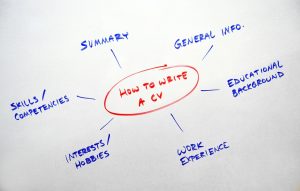Are you a graduate fresh out of school? Or applying for a job for which you have no experience? It might seem like a scary prospect to put together a satisfactory resume.
As daunting as the process might seem, it is possible to create a resume that gets you a job. Employers understand that you need to start your career somewhere, and if you put an effective resume together, you stand a great chance before some employers.
Here we highlighted useful tips from professional resume service providers how to create a resume without having job experience.
Table of Contents
1. Begin with a Resume Summary
A resume summary is an introduction that tells your employer of your background, skills, and qualifications that relate to the job you are applying for.
Your resume summary should highlight some relevant skills you picked up during your years at school, internship, or training that relates to the job.
2. Highlight Useful Non-Working Experience
Thankfully, some employers are seeking experiences that are not work-related. So, if you can highlight such experiences, you can get your foot in the door.
For example, relevant skills, experiences from your internships, school and course work, and even life experiences, if you describe it properly.
So, you don’t have to leave your work experience page empty; you simply need to combine all relevant non-work experiences in a manner that demonstrates your suitability for the job.
3. Focus on Your Educational Background
Seeing as you are fresh out of school or without experience, your educational background is probably your best qualification.
Create an educational reaction in your resume where you will highlight your academic experiences and how they fit into your job position.
This section should cover your grades (CGPA) if it is above 3.5 to boast of your abilities. It should also describe the awards or honors you received, scholarships you qualified for, student committees, or leadership roles you held.
Your educational details and qualifications help your future employer or recruiters see your worth even without working experience.
4. Create a Resume Skill Section
A well-written skill section will give you better reception than other candidates, and afford you better chances of securing the job.
While you are likely to have limited technical skills, you should highlight your soft skills such as communication, time management, organization, or interpersonal skills. Some other soft skills include teamwork, critical thinking, problem-solving, and positive attitudes.
5. Format Your Resume
To format your resume appropriately, rename work experience with relevant experiences. Changing the title will help you fit in more informal experiences. Align all your text to the left for easy readability, and use digits for representing numbers rather than letters.
6. Tweak your Resume to Fit With Your Role
To stand a better chance when applying for jobs without work experience, ensure to customize your resume towards the job and roles.
Study job listing and vacancies and see their requirements. Observe the keywords and skills and ensure to highlight related skills in your skill section. Also, reuse the keywords in the body of your resume so that it catches the recruiter’s eye.
